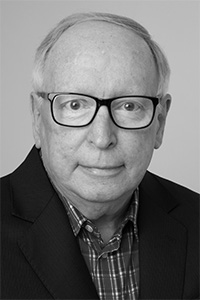Award Winners
Prof. Demircan Canadinc
Koc University, Turkey
Dr. Demircan Canadinc received his PhD in Mechanical Engineering from the University of Illinois at Urbana-Champaign in 2005.
Following post-doctorate appointments at the University of Paderborn in Germany and the University of Illinois, he joined the Mechanical Engineering Department at Koc University in, where he is currently working as a full professor. Dr. Canadinc's research focuses on the numerical and experimental characterization of metallic materials, and alloy design for structural, aerospace, and biomedical applications. His research in these areas has led to more than 100 scientific articles and an international patent. Within the recent years, he has adapted the artificial intelligence techniques to metallurgical problems, focusing on the design of refractory high-entropy alloys and high-temperature shape memory alloys. Dr. Canadinc has also owned and operated a Texas-based scientific consulting company serving industry since 2017. Based on his scholarly activities in the broad field of mechanics of materials, Dr. Canadinc was awarded the prestigious Humboldt Research Award by the Alexander von Humboldt Foundation in Germany in October 2022.
Prof. Leo Cheng
University of Auckland, New Zealand
Leo Cheng is a Professor at the Auckland Bioengineering Institute, University of Auckland, New Zealand. He graduated from the University of Auckland with a Bachelor of Engineering in Engineering Science with First Class Honours in 1997 and a PhD in Bioengineering in 2002. In 2016, he was awarded the Vice-Chancellor's Research Excellence Medal. After receiving the Fraunhofer-Bessel Research Award from the Alexander von Humboldt Foundation in 2015, he established long-lasting collaborations with the Fraunhofer IPA and the University of Stuttgart.
Leo’s research uses engineering, mathematical modelling, and experimental techniques to improve the understanding of electrophysiology events in the muscles and organs of the human body and their relationship to mechanical function. His primary focus is on smooth muscle organs such as the stomach, small intestine and the uterus. The ultimate aim of this research is to improve the diagnosis and treatment of clinical disorders.



Prof. Ashutosh Chilkoti
Duke University, USA
Ashutosh Chilkoti is the Alan L. Kaganov Professor of Biomedical Engineering at Duke University.
His areas of research include genetically encoded biomaterials and the development of synthetic biomolecular condensates for synthetic biology. He has published ~350 papers, has been cited ~45,000 times, has a Google Scholar H-index of 112, and has 40 patents and 60 patent applications in process. Prof. Chilkoti was awarded the Clemson Award for Contributions to the Literature by the Society for Biomaterials in 2011, the Robert A. Pritzker Distinguished Lecture award by the Biomedical Engineering Society in 2013, was elected to the National Academy of Inventors in 2014, received the Distinguished Alumni award from the Indian Institute of Technology, Delhi in 2015, and the Diamond award from the College of Engineering at the University of Washington in 2017. He is a fellow of the American Association for the Advancement of Science. He is the founder of six start-up companies: (1) PhaseBio Pharmaceuticals, a publicly traded company on NASDAQ (sticker: PHAS) that is taking drug delivery technology that he developed into clinical trials; (2) Sentilus, a clinical diagnostics company that was acquired by Immucor in 2014; (3) BioStealth, a spinoff of Sentilus; (4) GatewayBio, that is commercializing a next-generation PEGylation technology for biologics; (5) Isolere Bio that is developing a non-chromatographic technology for purification of biologics; and (6) inSoma Bio that is developing a recombinant protein matrix for tissue reconstruction.
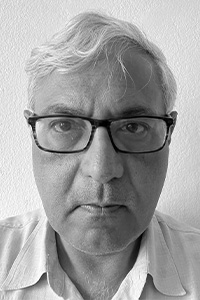


Prof. Thomas Christian Gasser
KTH Royal Institute of Technology, Sweden
T. Christian Gasser is Professor of Biomechanics at KTH Royal Institute of Technology, Stockholm, as well as Adjunct Professor at University of Southern Denmark, Denmark.
The development and application of advanced numerical techniques to solve realistic (bio)engineering and clinical problems, is the focus of Gasser’s research. Computational models for anisotropic finite strain materials have been implemented in all major Finite Element simulation packages, such as ANSYS, ABAQUS, COMSOL, etc. His main research interest concerns the biomechanical description of soft biological tissue, often related to the properties of the diseased vascular wall, a topic also investigated in cooperation with Leibniz University Hannover. Gasser’s translational biomechanics research led to A4clinicsRE, commercial biomechanical-based simulation software for clinical decision-making. He is Principal founder of ARTEC Diagnosis AB as well as VASCOPS GmbH, and serves a legal expert for skiing accident reconstruction at Oberlandesgericht, Graz, Austria.
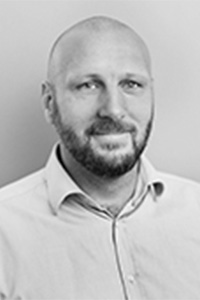


Prof. Kevin E. Healy, Ph.D.
University of California, Berkeley, USA
Kevin E. Healy, Ph.D. is the Jan Fandrianto and Selfia Halim Distinguished Professor in Engineering at the University of California at Berkeley in the Departments of Bioengineering, and Materials Science and Engineering.
He is a thought leader and innovator working at the interface between stem cells and materials science to develop dynamic engineered systems to explore both fundamental biological phenomena and new applications in translational medicine. His group currently conducts research in the areas of bioinspired stem cell microenvironments to control stem cell lineage specification and self-organisation into microtissues or organoids; bioinspired systems for regenerative medicine; biological interfaces; and, micro physiological systems for drug development, gene editing, and drug toxicity screening. Professor Healy is an elected Fellow of AIMBE, AAAS, FBSE, BMES, and has received an Alexander von Humboldt Foundation Award. He is a named inventor on numerous issued United States and international patents relating to biomaterials, therapeutics, stem cells, and medical devices, and has founded several companies to develop these systems for applications in biotechnology and regenerative medicine.



Distinguished Prof. Dietmar W. Hutmacher
Queensland University of Technology, Australia
Distinguished Professor Dietmar W. Hutmacher is a biomedical engineer, an educator, an inventor, and a creator of new intellectual property opportunities.
He is committed to fostering transformative research and pedagogical innovation as well as programmes that create an entrepreneurial mind-set amongst faculty and students. He directs the Centre for Regenerative Medicine, an interdisciplinary team of researchers including engineers, cell biologists, polymer chemists, clinicians, and veterinary surgeons. Prof Hutmacher is an internationally recognised leader in the fields of biomaterials, tissue engineering and regenerative medicine with expertise in commercialisation. He has translated a bone tissue engineering concept from the laboratory through to clinical application, involving in vitro experiments, preclinical studies and ultimately clinical trials. His recent research efforts have resulted in traditional scientific/academic outputs as well as pivotal commercialisation outcomes.
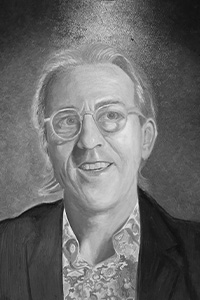


Prof. Dr. Karabi Biswas
Indian Institute of Technology Kharagpur, India
Dr. Karabi Biswas is a full professor in the Department of Electrical Engineering, Indian Institute of Technology Kharagpur, India.
She has developed a new circuit element named as fractional-order-capacitor with tuneable parameters. The work has motivated researchers across the world to fabricate fractional-order-capacitor by modulating the dielectric property of the material. The work has opened the door to validate the 300 years old-concept of mathematics called “fractional-calculus”. She has also indigenously developed several instruments for precision-agriculture and point-of-care health monitoring. She has received the Friedrich Wilhelm Bessel Research Award in 2021. Presently she is serving as an editor for the journals “IEEE Sensors” and “International Journal of Circuit Theory and Application”. She has more than 95000 article reads in ResearchGate and citations in Google Scholar is 2813.
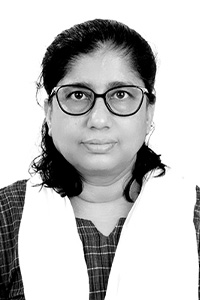


Prof. Nicolas Voelcker
Monash University, Australia
Professor Nicolas Voelcker is the Director of the Melbourne Centre for Nanofabrication (MCN) and Professor at the Monash Institute of Pharmaceutical Sciences at Monash University.
The core research activity in his laboratory is the study of silicon-based nanostructures at biointerfaces. Following from this more fundamental research, his focus is on the application of silicon-based nanostructured materials in biosensors, biochips, drug delivery and regenerative medicine.
He has authored over 500 peer-reviewed journal articles with over 22,000 citations, h-index 70, and has filed over 45 patents. He has received fellowships from the German Research Foundation (DFG), the CSIRO and the Alexander von Humboldt Foundation. He has served on the College of Experts of the Australian Research Council, is a Fellow of the Australian Academy of Technology and Engineering, a winner of a Humboldt Research Award and a current Australian Research Council Laureate Fellow.
As Director of the MCN, he is overseeing the largest joint venture in the Australian university system, and is supporting over 30 companies in their commercialisation endeavours.
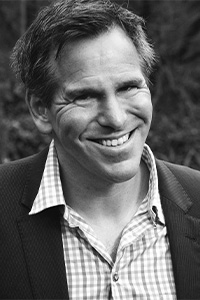


Prof. Katja Loos
University of Groningen, the Netherlands
Katja Loos is Professor at the Zernike Institute for Advanced Materials of the University of Groningen, holding the chair of Macromolecular Chemistry and New Polymeric Materials.
She currently serves as the President of the European Polymer Federation for the period of 2023 to 2025. She specialized in Organic Chemistry and Polymer Chemistry during her university studies at the Johannes Gutenberg Universität in Mainz, Germany and the University of Massachusetts in Amherst, USA. She moved into the field of Enzymatic Polymerizations during her doctoral research at the University of Bayreuth, Germany and the Universidade Federal do Rio Grande do Sul, Porto Alegre, Brasil. After a postdoctoral research stay at Polytechnic University in Brooklyn, NY, USA, she started an independent research group at the University of Groningen.
Katja Loos pioneered the field of enzymatic polymerization, especially the biocatalytic synthesis of polysaccharides and polyamides, and the synthesis and self-assembly of PVDF containing block copolymers. Already early in her career Katja Loos was awarded two travel scholarships of the German Academic Exchange Service (DAAD) and she received the very prestigious Feodor Lynen Fellowship award of the Alexander von Humboldt Foundation to conduct her postdoctoral research. During her independent research career, on the basis of her unique approach in combining modern polymer synthesis, (macro) molecular self-assembly, and utilization of the arising structures the Netherlands Organisation for Scientific Research (NWO) has awarded her the prestigious VIDI grant in 2009 and VICI grant in 2014 and the German Research Council (DFG) the Eleonore Trefftz guest professorship within the scope of its excellency initiative. Among others, she was awarded the Friedrich Wilhelm Bessel Research Award of the Alexander von Humboldt Foundation, the IUPAC Distinguished Women in Chemistry and Chemical Engineering Award and the Team Science Award of the Dutch Research Council (NWO). In 2023, she received the title of Knight of the Order of the Netherlands Lion.
Katja Loos is a Fellow of the Dutch Polymer Institute (DPI) and the Royal Society of Chemistry (RSC).
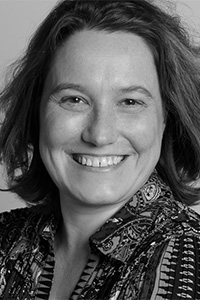


Prof. Dr. Andreas Mandelis
University of Toronto, Ontario, Canada
Professor Andreas Mandelis is the director of the Center for Advanced Diffusion-Wave and Photoacoustic Technologies and of the Institute for Advanced Non-Destructive and Non-Invasive Diagnostic Technologies at the University of Toronto.
He was educated at Yale University and earned his PhD from Princeton University in 1980. Prof. Mandelis is renowned for his expertise in thermophotonics and his pioneering work in photothermal and photoacoustic science. His research interests encompass applied physics, materials science, and biomedical engineering, leading to innovative applications in non-destructive evaluation, bioimaging, and biosensor technologies. Throughout his illustrious career, Prof. Mandelis has authored over 477 scientific peer reviewed journal and 193 proceedings publications and holds 43 patents. He has been Editor-in-Chief of the Springer International Journal of Thermophysics (2014-19), Topical Editor of the OSA Journal Optics Letters (2012-18), and editorial board member of the SPIE Journal of Biomedical Optics (2010-23). Currently he is an Associate Editor of the AIP Journals Review of Scientific Instruments, Journal of Applied Physics, and on the Scientific Advisory Board, Quantitative InfraRed Thermography (QIRT) Journal (Lavoisier Press, France). He is Contributing Editor of the AIP flagship magazine Physics Today. He has been the Canada Research Chair in Diffusion-Wave and Photoacoustic Sciences and Technologies (2008-2022) and he is a Fellow of the Royal Society of Canada, Academy of Sciences, and a Fellow of the Canadian Academy of Engineering. He has received numerous accolades, including the prestigious Killam Prize in Engineering and the APS Keithley Award in Instrumentation Science. Prof. Mandelis's contributions have significantly advanced both fundamental science and practical applications.
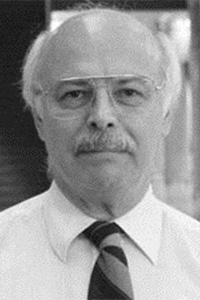


Prof. Karol Miller
The University of Western Australia, Australia
Karol Miller is a Winthrop Professor of Applied Mechanics at The University of Western Australia and until recently has been a Visiting Professor of Radiology at Harvard Medical School.
Karol was born and educated in Warsaw. He has MSc in aerospace engineering, PhD in robotics and DSc in biomechanics. In 2002, Karol established the Intelligent Systems for Medicine Laboratory. ISML’s mission is to work towards improving clinical outcomes through development and appropriate use of technology. The overall objective of Karol’s research is to help creating methods and tools, which will enable a new exciting era of personalised medicine based on scientific computations. He is best known for his work on biomechanics of the brain and vascular system. Karol’s research and teaching have been recognised by multiple awards, including the Humboldt Research Award, NVIDIA GPU Computing Champion Award, the Simulation Industry Association Australia Award, the Sir Charles Julius Medal, the Polish Prime Minister Award and the UWA Student Guild Choice Award.



Prof. Dr. Thomas Oxland
University of British Columbia, Vancouver, Canada
Dr. Thomas Oxland is a Professor of Orthopaedics and Mechanical Engineering at the University of British Columbia in Vancouver, Canada.
He is a biomechanical engineer who co-directs the Orthopaedic and Injury Biomechanics group within the ICORD Research Centre, located at Vancouver General Hospital. His specific areas of focus include the biomechanical aspects of the spine and spinal injury as well as orthopaedic implants. He is a Fellow of the Royal Society of Canada and the American Society of Mechanical Engineers, a past Fellow of the Canadian Academy of Engineering, and a Past President of the International Society for the Study of the Lumbar Spine.
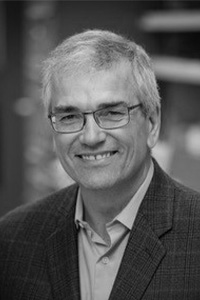


Prof. Dr. Milica Radisic
University of Toronto, Ontario, Canada
Dr. Milica Radisic is a Professor at the University of Toronto, Tier I Canada Research Chair in Organ-on-a-Chip Engineering and a Senior Scientist at the Toronto General Research Institute.
She is an Executive Editor of ACS Biomaterials Science & Engineering, the Director of the NSERC CREATE Training Program in Organ-on-a-Chip Engineering and Entrepreneurship and a co-Founder of the Centre for Research and Applications of Fluidic Technologies at the University of Toronto and a scientific lead of the Human Organ Mimicry Lab. She is a Fellow of the Royal Society of Canada-Academy of Science, Canadian Academy of Engineering, AIMBE, TERMIS and BMES. Her research focuses on structure-function relationships in organ engineering, biophysical modulation of tissues and development of new biomaterials that promote healing and attenuate scarring. She developed new methods to mature iPSC derived cardiac tissues using electrical stimulation. Her research findings were presented in over 260 publications with h-index of 71 and over 21,000 citations in journals such as Cell, Nature Materials, Advanced Materials, Nature Methods etc. She is a co-founder of two companies: TARA Biosystems, that uses human engineered heart tissues in drug development and safety testing (acquired by Valo Health), and Quthero that advances regenerative hydrogels.
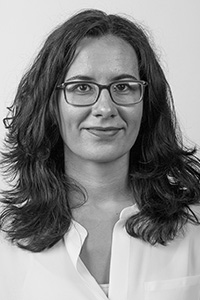


Prof. Dr. David Christopher Watts
The University of Manchester, England
David Watts is Professor of Biomaterials Science at the University of Manchester in the School of Medical Sciences, Division of Dentistry.
He gained his PhD in physical chemistry at the University of Wales and co-originated the Williams‑Watts [or KWW] "stretched exponential" relaxation function for the time‑dependent behaviour of condensed matter, cited more than 6,000 times. He is a Fellow of the Institute of Physics, the Royal Society of Chemistry and the Royal Society of Biology. He has published 470 papers, has 32,000 citations with a h-index of 92, and has personally supervised 75+ PhD candidates from 20 nations. He has served as Editor-in-Chief for Dental Materials [Elsevier] for the past 26 years. In 2010 he received the Humboldt Research Award. In 2024, the IADR Dental Materials Group (DMG) announced a new research award: “The David C Watts Award in International Collaboration”.
